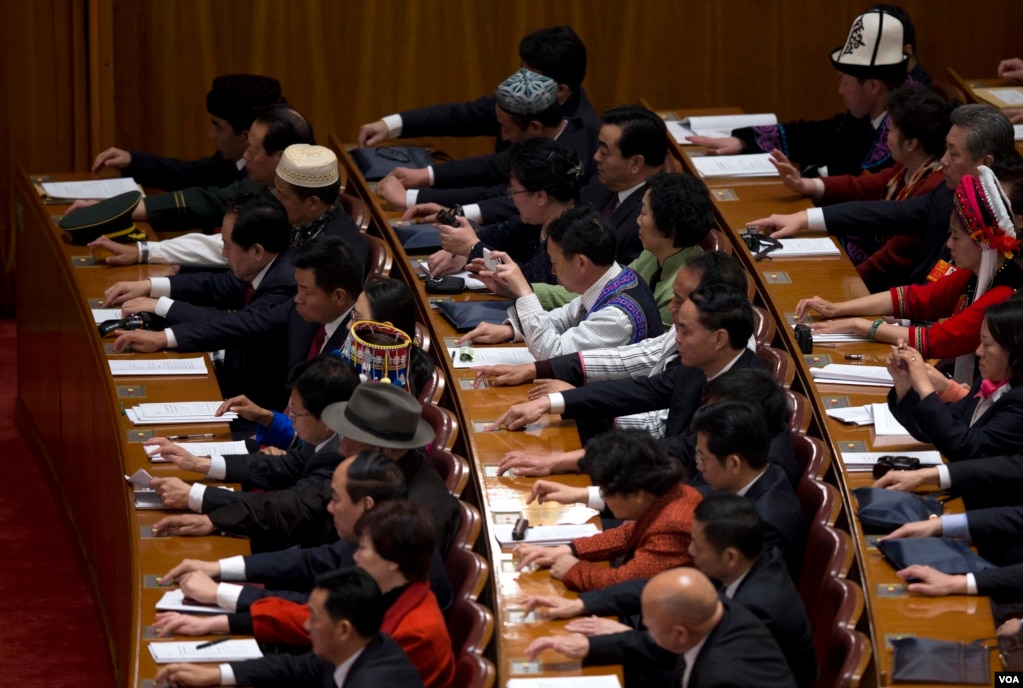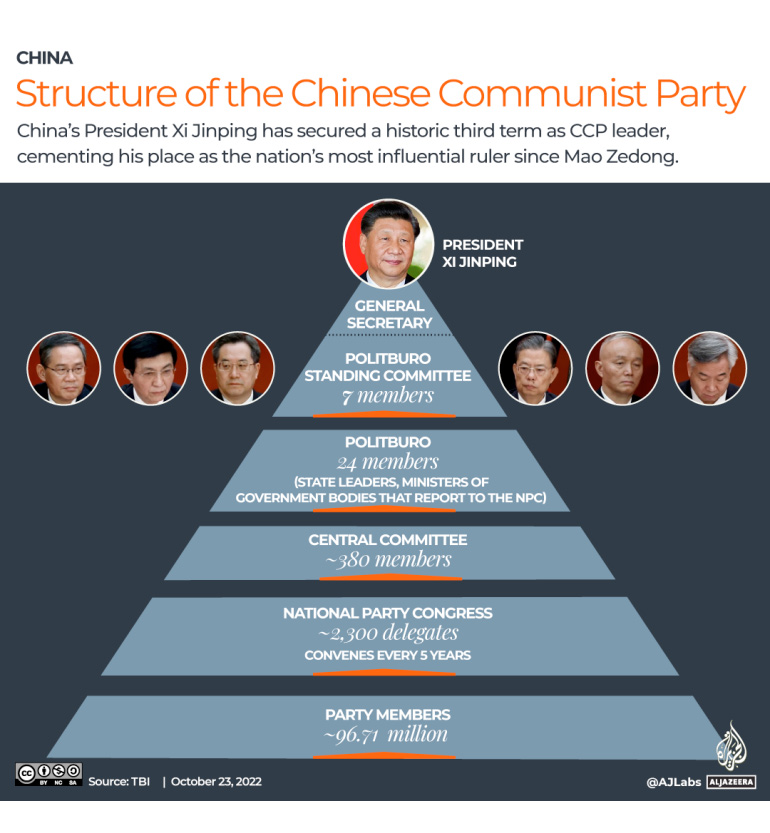
The Chinese Communist Party has just wrapped up its 20th National Congress, in which the party elites choose the members of the most important central committees, including the Standing Committee of which Xi Jinping continues as the top-dog in a gang of seven.
Xi Jingping in 2019 started using the term “whole-process democracy” to describe the system that makes him the most powerful person in China. How does the concept of democracy mesh with a top-down authoritarian system?
Nikkei Asia reports on Xi’s declaration:
According to Xi’s own explanation, all major legislative decisions in China will be made “after going through procedures and democratic deliberations to make sure the decision-making is sound and democratic.” This means that despite the lack of fair elections, policy decisions by the Chinese Communist Party will be made through a system that is completely democratic in a Chinese sense.
Business Insider quotes Chinese state media that purports to further explain Xi’s “whole-process” terminology:
The official definition of the term is vague. “China’s whole-process people’s democracy integrates process-oriented democracy with results-oriented democracy, procedural democracy with substantive democracy, direct democracy with indirect democracy and people’s democracy with the will of the state,” says China’s white paper on the subject, per CGTN.
“Completely Democratic in a Chinese Sense”
“Democracy” typically refers to a system that allows citizens to directly control the government they live under, or indirectly by electing representatives who manage the government as agents of the public. The rules for doing so have to be regular and well-known, or else it is impossible for the citizenry or independent observers to know whether democratic means are actually available. The adding of modifiers such as “in a Chinese sense” points that this is CCP propaganda rather than a real system. The mixing-down of “process-oriented democracy with results-oriented democracy” and “people’s democracy with the will of the state” suggests that the process is not independent of the result and that whatever public sentiment may be, it has to jive with the opinion of the government. If citizens have to make the result of their process whatever the current government wants, then it is absurd to suggest that this is a “democratic” system.
Taking a broad view of how the Chinese Communist Party has a grip over the people of China will reinforce the point that the Chinese people do not enjoy democratic means or representation.
Pyramid of Power
The party hierarchy is represented by this diagram from Al Jazeera:

Notice that the base of the pyramid is the party membership, of almost 97 million people. Still this is less than 7% of the population of China which is over 1.4 billion.
Even inside the party, it is a game for those who already have some favor or power. Chatham House explains:
The congress comprises 2,300 delegates representing all levels of the party hierarchy across 34 provinces and regions – from the governors of towns and cities, to Olympic champions, astronauts, and even the odd stand-up comedian to mark the ‘inclusiveness’ of the party.
The votes that decide the next cohort of party leaders come from three committees only: the Central Commission for Discipline Inspection, with 205 members and 171 alternate members (alternate members are simply substitutes to replace a member if they die, retire or are dismissed); the Central Committee, with 204 members; and the Politburo, with 25 members, only one of whom is a woman.
And even this process is effectively pre-ordained. The delegates vote from a pre-selected list, and in many cases they are voting for themselves. As the US Congressional Research Service writes:
At 19th Party Congress in 2017, delegates could choose 204 candidates for full Central Committee membership from a list of 222, for example, allowing them to reject 18 candidates, or 8.8% of the candidate pool. At that congress, almost a quarter of the nearly 2,300 delegates were themselves Party leadership-proposed candidates for the new Central Committee and CCDI, who were able to vote for themselves.
And the party is ensconced at all levels and in all aspects of governmental authority. Again the report from the Congressional Research Service:
How the Party exercises its leadership is not straightforward, however. China’s Leninist Party state polity features interlocking Party and state hierarchies that extend from the national level down as far as the village. According to the Party constitution, the Party sees itself “guiding the overall situation,” “coordinating the work of all sides,” and assuming “the role of leadership core among all other organizations at the corresponding level [of government].”
So where do those outside the Communist Party structure get to express their “democratic” voice?
As the Business Insider article explains, whole-process democracy is democratic mostly through means of surveys. As in the Chinese government surveys the public of its opinions on various issues. Surveys have no power to motivate the government outside of what the government decides to do about it. Citizens may suspect that the survey is being used to gather intelligence about who is for and against the government. As this article says, it may be safer fill out the survey, but to say the minimum about the issues queried on.
The danger of giving the wrong answer is clear to the citizen who strategically fills out their survey. The citizens of China are accustomed to having their electronic communications censored based on using the wrong terms. Even Winnie the Pooh as coded way of talking about Xi Jingping has been identified and eliminated.
And even the once powerful can be removed from relevance by those currently in control. At the end of the 20th National Congress, former premier Hu Jintao, who was seated next to Xi Jingping was escorted from the chamber. Western watchers assume that this is a signal that Hu was effectively being canceled by Xi. Meanwhile, it is reported that in China, this event has received no coverage.





